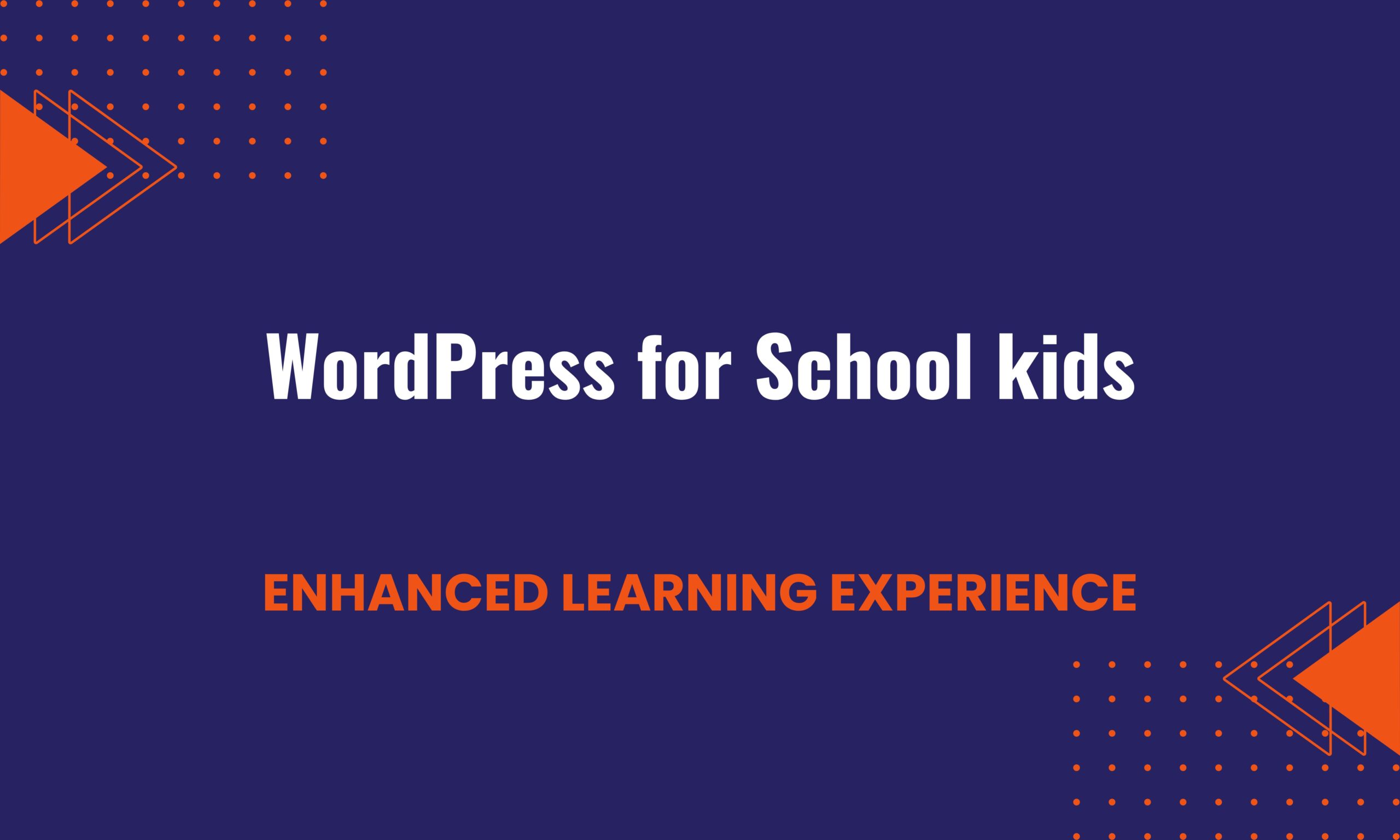In today’s digital age, technology plays a major part in education for it offers many sources and channels that enhance the learning experience.
An example of a platform that has gained a lot of traction with instructors and school kids is WordPress.
WordPress started as a blogging platform however evolved into a feature-rich content management system (CMS) that provides a wealth of advantages for students.
Let’s examine the benefits WordPress offers to school kids and the reasons teachers ought to think about using it in their lesson plans.
Creative Expression
WordPress provides a user-friendly interface allowing students to express their creativity through writing, designing, and publishing content.
Whether it’s writing blog posts, creating digital portfolios, or showcasing multimedia projects, WordPress offers a platform for students to unleash their imagination and share their ideas with a global audience.
Digital Literacy
In today’s digital world, proficiency in digital skills is essential for success. By using WordPress, students develop important digital literacy skills such as content creation, website management, and online communication.
Learning to navigate WordPress equips school kids with practical skills applicable in various academic and professional settings.
Collaborative Learning
WordPress facilitates collaborative learning experiences where students can work together on group projects, share feedback, and collaborate in real-time.
With features like user roles and permissions, teachers can create a safe and structured online environment where students can collaborate while maintaining control over content creation and management.
Project-Based Learning
WordPress supports project-based learning by providing a platform for students to engage in authentic, hands-on projects that integrate multimedia elements such as text, images, videos, and interactive media.
Whether it’s creating a virtual museum, documenting a science experiment, or publishing a class newsletter, WordPress structure offers endless possibilities for project-based learning experiences.
Digital Citizenship
Using WordPress encourages responsible digital citizenship by teaching school kids about online etiquette, privacy, and security.
As students publish content online, they learn to respect copyright laws, cite sources properly, and engage in constructive online interactions.
These lessons in digital citizenship are essential for preparing students to navigate the digital world responsibly.
Audience Engagement
WordPress platform for schools allows students to reach a wider audience beyond the classroom walls.
By publishing their work online, students can receive feedback and comments from peers, parents, and even experts in the field.
This audience engagement not only motivates students to produce high-quality work but also fosters a sense of pride and ownership in their achievements.
Differentiated Instruction
WordPress offers flexibility for differentiated instruction, allowing teachers to tailor learning experiences to meet the diverse needs of students.
Teachers can create individualized learning pathways, provide personalized feedback, and offer additional resources based on students’ interests, abilities, and learning styles.
21st Century Skills
Beyond academic content, WordPress helps school kids develop essential 21st-century skills such as critical thinking, communication, collaboration, and creativity.
WordPress platform for universities also engages in authentic, project-based activities on WordPress, students learn to solve problems, think critically, and communicate their ideas effectively in a digital environment.
Final Thought
To sum up, WordPress is an effective platform that gives schoolchildren more control by encouraging creativity, improving digital literacy, encouraging collaborative learning, and developing critical 21st-century skills.
Tutors may use WordPress to create dynamic, interesting learning environments that give school kids the skills they need to succeed in an increasingly digital society.
With WordPress, there are countless opportunities to enhance learning outcomes and enable students to become capable, self-assured digital citizens, whether through blogging, website creation, or multimedia projects.

